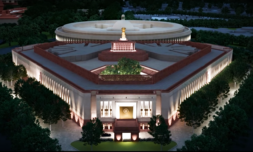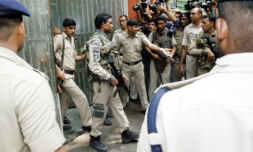In recent years, a significant number of foreign journalists have been forced to leave the country, raising concerns about press freedom and the quality of international coverage in India.
‘After 13 years working as a correspondent in India, the authorities have denied me a permit to work as a journalist,’ wrote Sébastien Farcis – who reports for various French and European media outlets – on X earlier this week. ‘I have thus been forced to leave the country.’
Describing this incident as ‘incomprehensible censorship,’ he is one of many others to face the same fate, drawing attention to a growing trend across India that’s seeing foreign media professionals struggling to operate in the world’s largest democracy.
In April, Avani Dias, the South Asia bureau chief for ABC, was forced to leave after being told by the government that her visa, which was due for renewal, would be blocked. This decision appeared to be linked to her coverage of Sikh separatist Hardeep Singh Nijjar’s death.
And in February, French journalist Vanessa Dougnac was also forced to leave after the Ministry of Home Affairs made it imperative for foreign correspondents who had the Overseas Citizen of India (OCI) card to obtain a work permit – denying hers.
After 13 years working as a correspondent in India, the authorities have denied me a permit to work as a journalist. I have thus been forced to leave the country.
Here is my statement. pic.twitter.com/m52Q4ABsRk
— Sébastien Farcis (@sebfarcis) June 20, 2024
The complications
Private surveys conducted among foreign correspondents have highlighted an atmosphere of intimidation and uncertainty in India.
Many journalists have recorded difficulties in obtaining or renewing visas, as well as permits for sensitive areas like Kashmir and the northeast.
In 2021, 96 per cent of applicants failed to secure these permits, effectively restricting all coverage of these regions.
Adding insult to injury, some have even encountered explicit pressure from the government to produce positive content and avoid certain topics.
One detailed being summoned to the Indian High Commission during their application process and being told that their stories were too ‘anti-government.’
And another particularly alarming case involved the Indian embassy emailing the publication a European reporter was working for to request they ‘stop covering Muslim persecution.’
Such direct attempts to influence editorial decisions raise questions about the government’s respect for press freedom, journalistic independence, and international coverage in India.




















